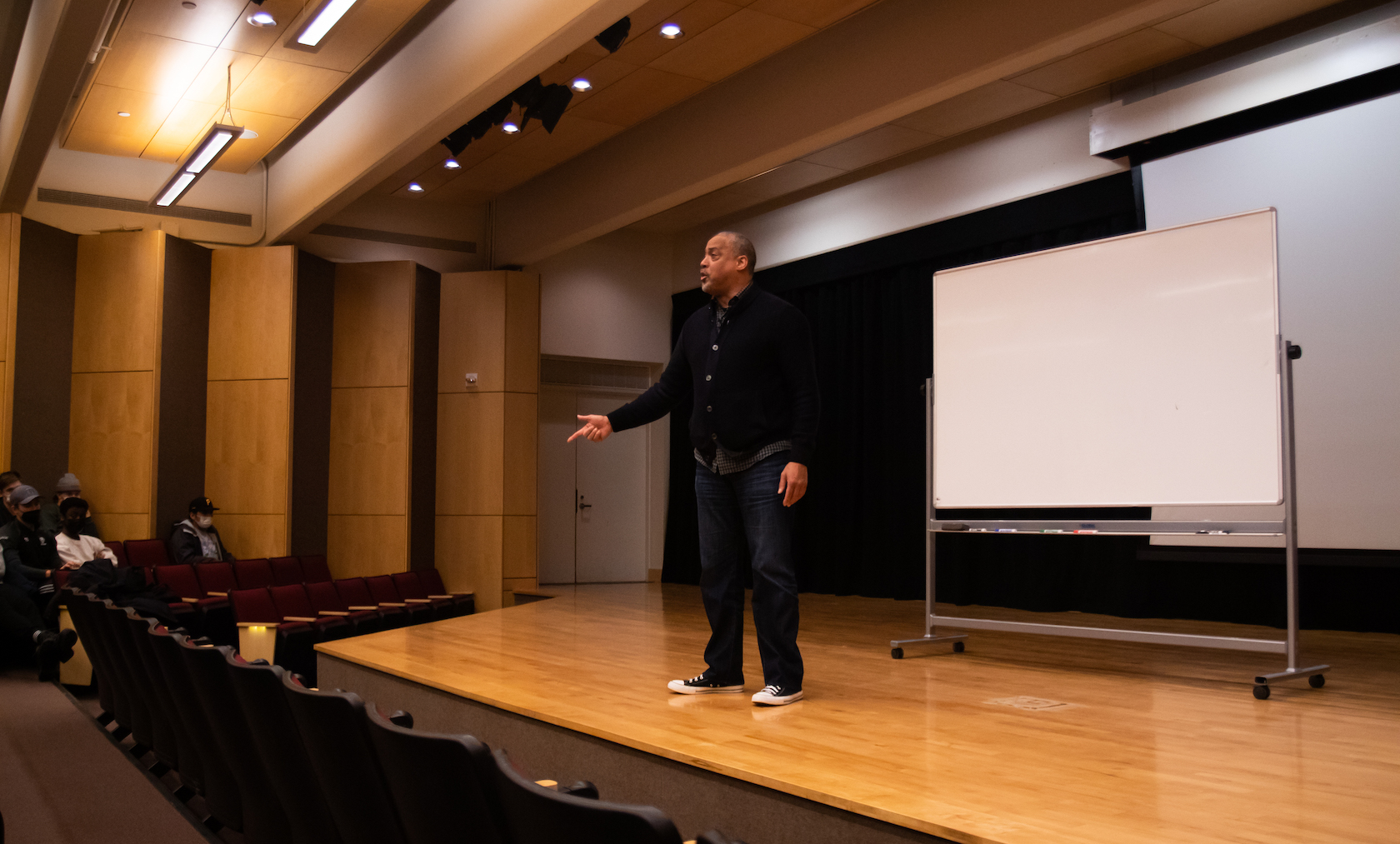Don McPherson delivers talk on gender violence, masculinity to Bowdoin athletes
March 4, 2022
 Taira Blakely
Taira BlakelyBowdoin student athletes and their coaches gathered in Kresge Auditorium on Tuesday night for NCAA-mandated gender violence training led by author, speaker and former Syracuse quarterback Don McPherson. After a successful football career spanning both the CFL and NFL, McPherson forged a path that blended sports and activism, bringing his talent to organizations such as Northeastern University’s Center for the Study of Sport in Society and Adelphi University’s Sports Leadership Institute. While working at such institutions, McPherson narrowed the focus of his activism to gender violence and masculinity. He has traveled to over 350 college campuses to conduct trainings and workshops on these topics for over one million students.
One of McPherson’s most prominent messages for his audience was to not shy away from difficult conversations, especially those pertaining to gender violence. Moreover, McPherson urged his audience to reframe these difficult conversations in a way that replaces what McPherson calls “prevention language and scare tactics” with positivity and the will for self-improvement.
“We’re not supposed to have open conversations about sex, about violence, about abusive relationships…we don’t have honest discussions, and we expect you to make good decisions with no information or bad information,” McPherson said. “Part of the work I started doing many years ago was rooted in the things that you all do every single day. You learn to have difficult conversations with each other to help each other learn and get better. You have to call each other out and hold each other accountable.”
McPherson believes that one of the most integral parts of this conversation centers around masculinity and men’s engagement with conversations about gender violence.
“We tell women to carry guns, carry mace, carry pepper spray, to protect them[selves] from [men], and that is why this conversation has to be about engaging men in a positive, sustainable way,” McPherson said.
More specifically, McPherson emphasized the importance of deconstructing commonly-understood images of masculinity as a means of addressing gender violence.
McPherson asked students in the audience: “what does it mean to be a man?” Respondents called out words such as “tough,” “angry,” “strong” and “unemotional,” all of which McPherson wrote inside a box that he drew on a whiteboard. He called this box the “box of masculinity,” and encouraged male students not to let it define them or their interactions with others.
“If we don’t have this conversation, if we call [gender violence] a ‘women’s issue,’ if we don’t interrogate masculinity in an honest way, as men, we don’t get better,” McPherson said. “If we don’t get better, this is all we are.”
The Office of Gender Violence Prevention and Education (OGVPE) and the Department of Athletics partnered to sponsor McPherson’s talk. Interim director of OGVPE Rachel Reinke is optimistic about the impact his words will have on Bowdoin’s culture, both on and off the field.
“I think the audience that [McPherson had] with all of these athletes [was] an incredible opportunity, not necessarily to change anyone’s mind right out, but to facilitate further conversations,” Reinke said. “I hope that people [left] with more questions than answers and a willingness to engage in this conversation, both within their athletic teams and outside on campus more broadly.”

Comments
Before submitting a comment, please review our comment policy. Some key points from the policy: